All Stories
-
 Astronomy
Astronomy‘Einstein’s Shadow’ explores what it takes to snap a black hole’s picture
The new book offers a behind-the-scenes look at the Event Horizon Telescope’s attempt to image a black hole.
-
 Physics
PhysicsA new ultrafast laser emits pulses of light 30 billion times a second
A new technique allows lasers to pulsate at a higher rate than ever before.
-
 Health & Medicine
Health & MedicineCity size and structure may influence influenza epidemics
The size and structure of cities helps shape the progression of new influenza cases during a flu season, a new study finds.
-
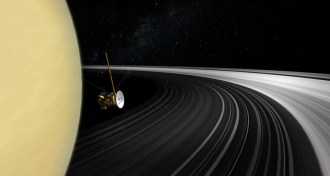 Planetary Science
Planetary ScienceSaturn’s ‘ring rain’ is a surprising cocktail of chemicals
NASA’s Cassini probe got a closeup view of the material falling from Saturn’s rings into the planet. The data could help illuminate the belts’ origins.
-
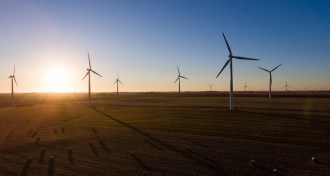 Climate
ClimateHow wind power could contribute to a warming climate
If the United States had enough wind turbines to generate all of its power, they would warm the country by 0.24 degrees Celsius on average.
-
 Chemistry
ChemistrySpeeding up evolution to create useful proteins wins the chemistry Nobel
The three winners, which include the fifth woman to win the chemistry prize, pioneered techniques used to fashion customized proteins for new biofuels and drugs.
By Laurel Hamers and Maria Temming -
 Particle Physics
Particle PhysicsPhysicist Leon Lederman, renowned for his subatomic particle work, has died
The Nobel Prize–winning particle physicist discovered multiple particles and wrote popular science books.
-
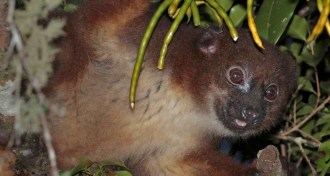 Life
LifeLemur study suggests why some fruits smell so fruity
A new test with lemurs and birds suggests there’s more to fruit odors than simple ripening.
By Susan Milius -
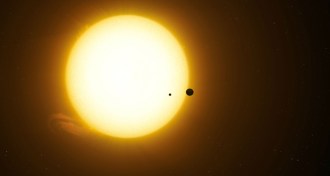 Astronomy
AstronomyHubble may have spotted the first known exomoon
A single sighting with the Hubble Space Telescope seems to confirm that there’s a Neptune-sized moon orbiting exoplanet Kepler 1625b.
-
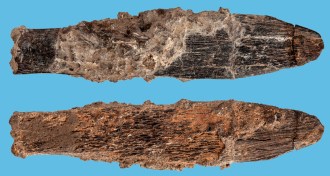 Humans
HumansA 90,000-year-old bone knife hints special tools appeared early in Africa
The discovery of a bone knife in a Moroccan cave points to the ancient emergence of specialized toolmaking in the region.
By Bruce Bower -
 Chemistry
ChemistrySpeeding up the evolution of proteins wins the chemistry Nobel
Work on evolving new proteins from old ones takes the Nobel Prize in chemistry.
-
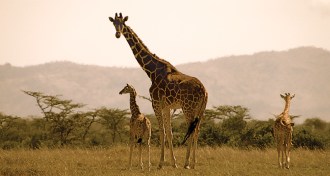 Animals
AnimalsGiraffes inherit their spots from their mothers
Africa’s tallest creatures get their characteristic patterns of spots from their moms, a new study finds.